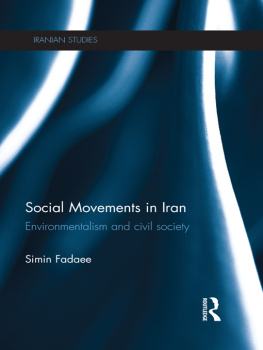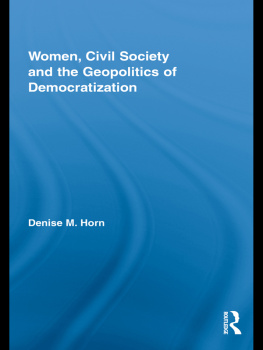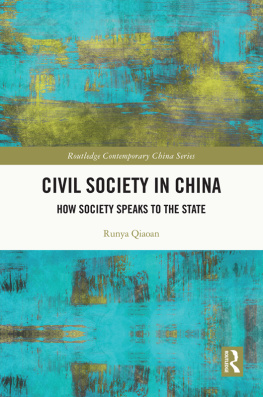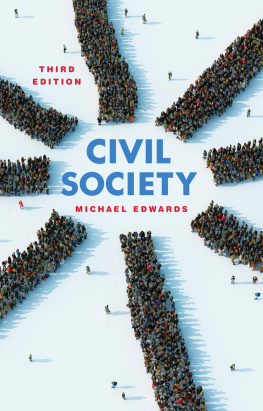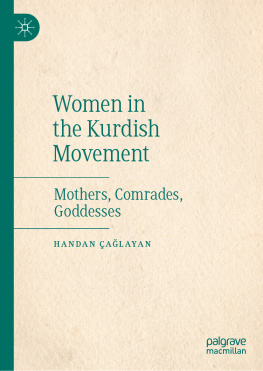First published 2013 by Ashgate Publishing
Published 2016 by Routledge
2 Park Square, Milton Park, Abingdon, Oxon OX14 4RN
711 Third Avenue, New York, NY 10017, USA
Routledge is an imprint of the Taylor & Francis Group, an informa business
Copyright 2013 mer aha
mer aha has asserted his right under the Copyright, Designs and Patents Act, 1988, to be identified as the author of this work.
All rights reserved. No part of this book may be reprinted or reproduced or utilised in any form or by any electronic, mechanical, or other means, now known or hereafter invented, including photocopying and recording, or in any information storage or retrieval system, without permission in writing from the publishers.
Notice:
Product or corporate names may be trademarks or registered trademarks, and are used only for identification and explanation without intent to infringe.
British Library Cataloguing in Publication Data
A catalogue record for this book is available from the British Library
Library of Congress Cataloging-in-Publication Data
aha, mer, 1964
Women and civil society in Turkey : womens movements in a Muslim society / by mer aha.
pages cm
Includes bibliographical references and index.
ISBN 978-1-4724-1007-8 (hardback)
1. Feminism--Turkey. 2. Civil society--Turkey. 3. Women--Turkey--Social conditions. 4. Women--Political activity--Turkey. I. Title.
HQ1726.7.C345 2013
305.4209561--dc23
2013006002
ISBN 9781472410078 (hbk)
There is a Stella Mars postcard saying Redefine feminism so it includes you. Whether feminism today needs a redefinition or not is an ongoing debatable issue among feminists. This study brings the problem under discussion by drawing attention to the existence of different womens movements in Turkey. Starting in the early years of the 1980s, we began to hear the voice of diverse womens groups with common as well as different discourses. At least three womens movements are worth mentioning in this respect. In the 1980s, the feminist movement, for the first time following a long break after 1935, occupied the streets and brought attention to the discourses related to the control of women of their own bodies. The Islamic womens movement that accompanied feminism concentrated on the struggle to articulate in public life with their headscarves. After the mid-1990s, we started to hear the voice of Kurdish womens groups drawing attention to the intersection of a double identity, namely of gender and ethnicity. We can say that the demands of each movement can be considered feminist if we leave aside the essentialist understanding of woman as developed by the feminist movements within a modernist paradigm.
This study contains the 30 years history of diverse womens movements that occupied the agenda of Turkish society between 1980 and the early 2010s. I can happily say that I have examined almost all magazines published in Turkey by feminist, Islamic and Kurdish womens groups during this time: in this respect, more than 50 different magazines. In order to understand the reactions to feminists coming from different social groups, like Kemalists, diverse leftist groups or Islamic groups, I have analyzed other publications on womens issues as well. In addition to the analysis of publications of diverse womens movements, I have also interviewed some of the leaders of these movements. It is a great pleasure for me to present this book as the outcome of a long, hard and labor-intensive study covering more than 30 years.
I have given speeches, lectures, and conferences in Turkey, as well as in various other countries, on topics such as the issue of womanhood in Turkey, the womens movement and civil society, and Islam and women, and so on. The question I have most frequently been asked in most of these speeches is, As a man, why do you deal with such an issue? My response to this question has mostly been as follows: We are living in a society where women are being oppressed and subordinated in various ways. Women are not oppressed by men because of patriarchal culture only, but also by political authority in the name of such projects as westernization and modernization. I have developed a passion for this issue as required by my sense of justice.
A number of books in Turkish and various articles in Turkish and English are the reflection of my sense of justice that I owe to women as a man in a Muslim society. This is perhaps an attempt to pay a debt of conscience to my own sisters, with whom I was born into the same family but from whom I became separated by a world of difference; to my childhood girlfriend, from whom I am currently very different in many aspects due to schooling processes, although we grew up on the same street and played the same games; and to numerous oppressed women I have witnessed throughout my life, spanning over 40 years. This interest is a kind of pay-off for the advantage of being a man in the type of society and culture I was born into. Beyond my personal life story, I believe that the issue of woman should be of interest to both academician and writer due to its crucial significance for the social life of the human community.
When I was a university student, I wrote an article entitled It is Difficult to be a Woman. I attempted in that article to demonstrate how women are used as instruments in the power struggle, especially in the hands of the political powers. Some friends of mine teased me by saying, As a man, how can you know about the difficulty of being a woman? Indeed, they were largely right. It is a reality that the womens movement or movements have produced two main concepts: womens politics and the womens perspective. The former one is of a character that might attract support from men, although it is a gender-based struggle. However, the latter one is a matter of experience. Perspective is something that can only be acquired through experience. For this reason, I am aware of the unavoidable fact that I have left many defects behind me stemming from a lack of experience on this issue. In this respect, I think it is inevitable for me, as a man, to inadequately analyze and understand, or even to misunderstand, those women who experience problems and carry out the activities of the womens movement and their organizations and publications. Thus, I hope all women and all actors that I have analyzed here will understand and tolerate me.
Surely, in every work, there are individuals and institutions that need to be appreciated and thanked. First of all, I thank my lovely wife, Havva, for her invaluable support of all my work; my son, Melih Erdem, and daughter, Merve ebnem. I am sure that when Merve grows up, she will be proud of her father for doing this work in times I stole from her. I would like to express my special gratitude to the Womens Library in Istanbul for their archival support. I can honestly say, as a researcher working on this issue, that one of the most valuable accomplishments of the womens movement in Turkey is the Womens Library, which developed as an outcome of this movement. I thank every single individual who initiated and supported this institution. I would like to send my sincere thanks and appreciation to all the women I interviewed from different womens groups. There are countless friends and colleagues who deserve thanks for improving my knowledge and perspective by discussing womens issues with me. Since I am afraid of forgetting someone, I will not list any names here, but I express my feelings of thanks, appreciation, and gratitude to all who supported and contributed to this study in numerous ways.




